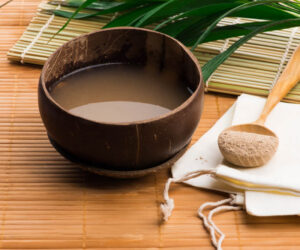Kava Drug Facts: What You Need to Know About Its Side Effects and Risks

In recent years, kava has grown in popularity in the U.S. with trendy bars popping up on what seems every corner. This traditional herbal beverage is known for its calming effects and as an alternative to alcoholic beverages and other drugs. Although there are benefits to kava over alcohol, it may not be immune to several risks found in excess alcohol consumption. Here we will go through some kava drugs facts and potential side effects so you can determine for yourself whether the benefits outweigh the risks.
What is Kava? Understanding Its Origins and Uses
Also known as kava kava, it is a drink made from the kava root plant. Native to the Pacific Islands, kava has been used for centuries as a natural relaxant and for ceremonial purposes. The kava root is traditionally used to make beverages that have mild to moderate sedative effects.

Today, it has grown in popularity as an alternative to alcohol, as it can relieve anxiety, stress, and insomnia. It is also said to help treat various types of pain including headaches and can be found in many health foods stores, kava bars, and online.
Kava bars have a sort of coffee-house aesthetic, which provides customers with a social experience similar to traditional bars or pubs. They create kava cocktails with various juices to mask its strong, earthy flavor. Individuals who have quit drinking alcohol or are in recovery, feel that kava is a safe alternative as it is seen as a supplement and because there is no current research proving it causes dependency.
How Kava Affects the Body and Mind
Kava contains a substance called kavapyrones, which act much like alcohol on the brain creating a calming, relaxed, and happy state. As a depressant, it slows down the communication between the brain and body. Similar to alcohol and benzodiazepines, it enhances the effects of gamma-aminobutyric acid, or GABA, reducing anxiety and stress. However, it binds to a different GABA receptor which makes kava less addictive than anxiety-reducing medications and alcohol.
How kava affects the body and mind depends on several factors including age, weight, gender, tolerance, eating food before use, and preparation methods. There are also several strengths and strains of kava which can produce different effects.
Common effects of kava include:
- Relaxed muscles
- Feelings of wellbeing
- Relaxation
- Appetite loss
- Sleepiness
- Mild loss of feeling in the throat and mouth
- Nausea
- Drowsiness
- Reduced muscle control
- Reddened eyes
- Dilated pupils
Common Uses of Kava in Traditional and Modern Contexts
Kava is considered sacred in Pacific cultures and has been for centuries as a ceremonial drink. The kava root is crushed, chewed, or ground into a pulp and soaked in cold water to create a thick brew. It is often served during significant events such as funerals, weddings, and welcoming guests. Kava is used in Pacific cultures similarly to how alcohol is used in the Western world.
In modern contexts, it is primarily used to reduce stress and anxiety, also similar to alcohol. Many users feel it is a more natural alternative to alcohol and antianxiety medications. Kava is also used as a sleep aid, as many report it helps improve sleep quality and decreases the amount of time needed to fall asleep.
Potential Side Effects of Kava Use
Many feel that kava is a safe, psychoactive option for relaxation because it is legal and natural. However, natural does not always mean safe. Sedative effects can lead to adverse reactions such as headaches, gastrointestinal discomfort, nausea, and vomiting. It can also cause intoxication, which can hinder the ability to safely operate a motorized vehicle or heavy machinery. It is also dangerous to mix kava with other psychoactive drugs or alcohol, as they can increase one another’s effects.
Long-term kava use can also cause a wide range of problems, including liver damage. Other side effects of regular kava use include:
- Apathy
- Mood swings
- Dry, scaly skin
- Malnutrition and severe weight loss
- Compromised immune system
- Shortness of breath
Health Risks Associated with Kava Consumption
One of the biggest health risks associated with kava is mixing with other substances or medications. Intoxicating effects like fatigue, sedation, reduced coordination, and muscle weakness can be amplified, making you feel more drunk and increasing the risk of liver damage. Individuals can also place themselves in dangerous situations, such as driving under the influence.
While there is no evidence supporting addiction to kava like opioids or benzodiazepines, it is habit-forming. Repeated use can lead to substance abuse and dependence, which can lead to several negative effects. Users may crave the experience or high they get from kava use. Some individuals who have taken kava for extended periods or in moderate to large dosages may also experience some withdrawal symptoms.
Signs of Kava Abuse and Dependence
While there are no current diagnostic criteria for kava substance use disorder, regular users can develop a habit of it and build up a tolerance. As with habit-forming substances, certain signs can indicate a person has a problem with kava use, including:
- Inability to stop using kava even when wanting to do so.
- Obsessing over kava use.
- Spending large amounts of time and money obtaining and using kava.
- Experiencing cravings.
- Continuing to use kava despite negative consequences.
- Neglecting responsibilities to use kava.
- Withdrawing from friends and family.
- Hiding kava use.
If you or a loved one are exhibiting two or more of these signs, you may have a problem with kava abuse. It is important to reach out for professional help to determine whether substance abuse treatment is needed. Getting help early on can greatly improve the chances of overcoming any type of addiction or substance dependence.
Legal Status of Kava in the United States
At the federal level, kava is not classified as a controlled substance, meaning it is legal for general consumption and is sold as a dietary supplement. It is often marketed for its potential anti-anxiety effects and for improving sleep quality. However, regulations vary by state due to potential health concerns. There is also no age limit to purchasing kava, however many kava bars and retailers only serve those 18 years or older. While the FDA does not regulate kava, they have warned about its potential for liver-related injuries, including hepatitis, cirrhosis, and liver failure.
Treatment Options for Kava Abuse at WhiteSands Treatment
Addiction and dependence are two different things. While you may not have a chemical need for kava, you may have developed certain habits that have made it difficult to stop using, becoming dependent on it. Often, individuals with mental health struggles, such as anxiety or depression, may use substances like kava to self-medicate. Professional help can help address the underlying causes of substance dependence through therapy and holistic treatment.
WhiteSands Treatment offers comprehensive, personalized care for any type of substance dependence. We offer various levels of care from medical detox to inpatient treatment to outpatient treatment options. Kava addiction treatment involves focusing on the psychological and behavioral aspects while promoting healthier coping mechanisms. Through several types of individual and group therapy sessions, patients will acquire the tools and skills needed to overcome kava abuse and treat co-occurring disorders such as anxiety.
If you or a loved one are struggling to stop kava use, please give us a call today at (877) 855-3470. Our addiction specialists are available around the clock to answer your questions and help you determine whether WhiteSands Treatment is the right option for you.
If you or a loved one needs help with abuse and/or treatment, please call the WhiteSands Treatment at (877) 855-3470. Our addiction specialists can assess your recovery needs and help you get the addiction treatment that provides the best chance for your long-term recovery.


























